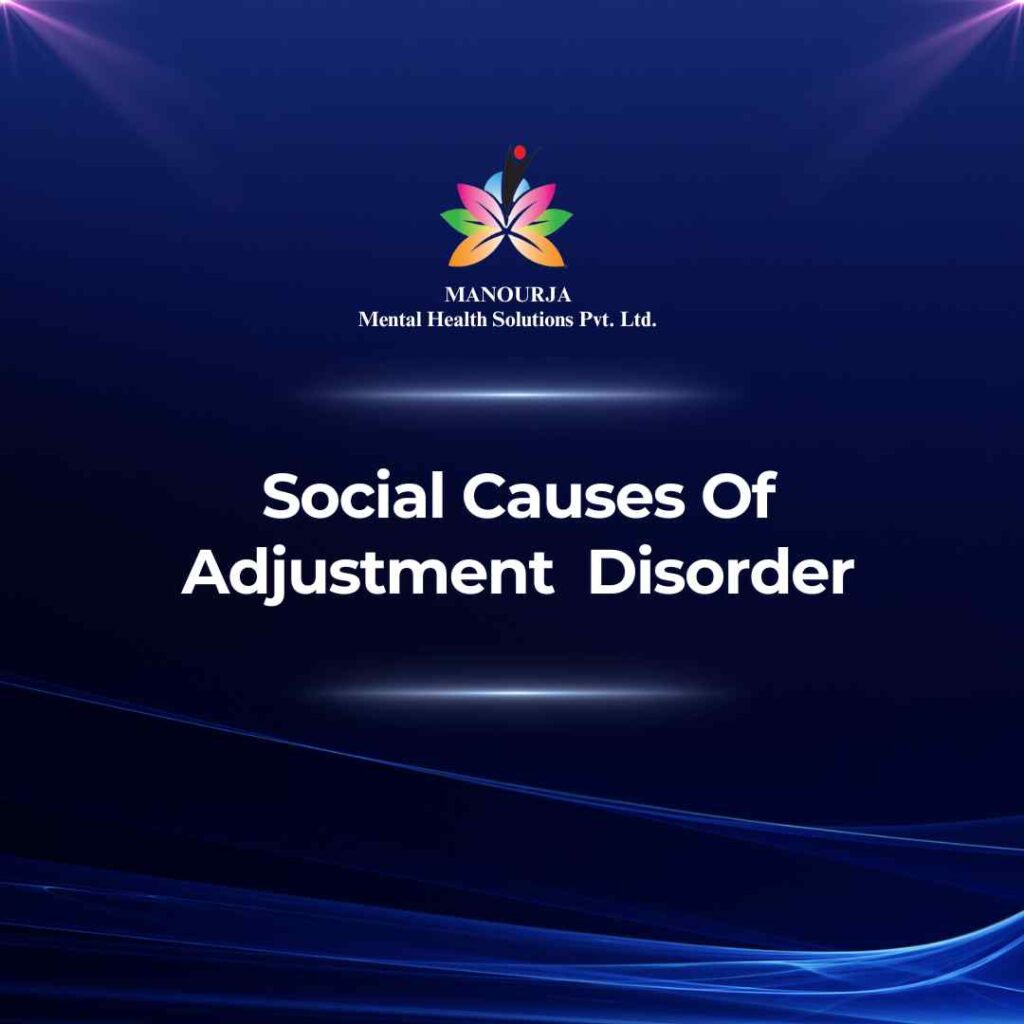Social Causes of Adjustment Disorder

Adjustment disorder is significantly influenced by social factors, as changes in one’s social environment often act as stressors that can precipitate the disorder. Understanding the social causes is key to addressing and managing this condition.
Here are some prominent social causes of adjustment disorder:
- Significant Life Changes: Major life transitions such as moving to a new city, starting a new job, or entering or leaving a significant relationship can trigger adjustment disorder. These changes can disrupt established social routines and support systems, leading to feelings of instability and stress.
- Loss and Grief: Experiencing loss, such as the death of a loved one, a breakup, or even the loss of a job, can profoundly affect emotional stability. The grieving process can complicate one’s ability to adjust, leading to adjustment disorder if the emotional impact is overwhelming.
- Relationship Difficulties: Conflict with family members, friends, or coworkers can be significant stressors. Persistent difficulties, such as ongoing marital discord, abusive relationships, or bullying at work or school, can trigger an adjustment disorder.
- Social Isolation or Loneliness: Lack of a supportive social network can make it difficult for individuals to manage stress effectively. Isolation, whether voluntary or enforced (such as moving to a place where one has no friends or family), can lead to an increased risk of adjustment disorder.
- Cultural Displacement: Immigrants or individuals who move to a new cultural environment may struggle with adapting to the norms, values, and behaviors of the new society. This cultural adjustment can be stressful and, if not managed well, may lead to adjustment disorder.
- Economic Stressors: Financial difficulties such as unemployment, debt, or poverty can lead to significant stress and potential social stigma, which can contribute to the development of an adjustment disorder.
- Academic Pressures: Students often face significant stress from academic demands and the pressure to succeed, coupled with the social dynamics of school environments. These pressures can be potent triggers for adjustment disorder, particularly in those without adequate support systems.
Each of these social causes can challenge an individual’s ability to adapt effectively, potentially leading to the development of adjustment disorder. Treatment and support for those experiencing this condition often involve addressing these social factors directly—through therapy, community support programs, and interventions aimed at enhancing social skills and networks.
At MANOURJA, we believe in the transformative power of counseling. Our experienced therapists offer a safe and supportive space where you can explore your thoughts, emotions, and challenges. Through personalized counselling sessions, we’ll work together to develop coping strategies, build resilience, and achieve lasting positive change. Discover the path to a healthier, happier you with MANOURJA counselling services.
MANOURJA Rehabilitation Services
At MANOURJA, we’re dedicated to helping you in rebuild your life, after difficult times. Our rehabilitation services focus on understanding what you need to move forward, whether you’re recovering from addiction, trauma, or any psychological – social challenges. We create personalized plans, that are all about helping you, regain your strength and find hope again. With a caring team by your side, you’ll have the support to make real progress and take steps toward a brighter, healthier future.
